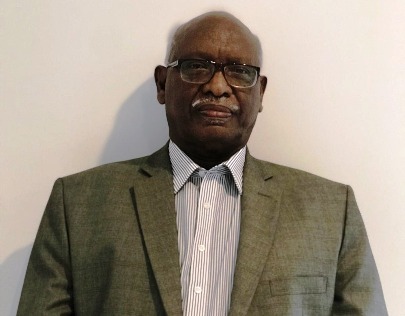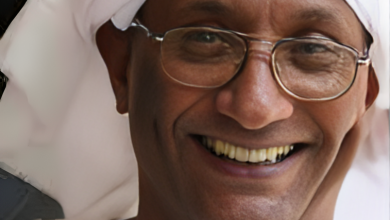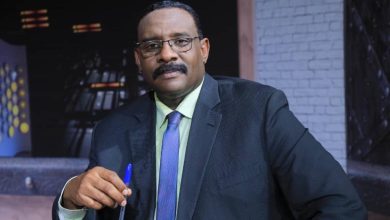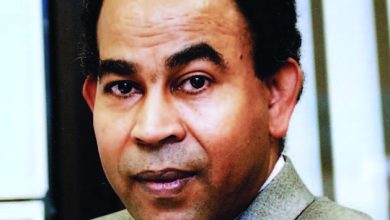The Political Game in Sudan and Changing its Rules

By: Zain Al-Abidin Saleh Abdel Rahman
The historical stages that Sudan went through after independence raised many questions. These were not only about identity, the center and the periphery, the distribution of wealth and power, or cultural diversity, but also about the issue of governance. Specifically, the question revolved around “the democratic system and political pluralism on one hand, and the one-party system with diverse opinions on the other.” There are questions that also need answers from political party leaders: Are Sudanese political parties, both those founded before and after independence, truly committed to democracy? Are they sincerely working towards establishing a democratic system, or are these just slogans that mask other interests? Can parties with ideologies that contradict democratic principles resolve this contradiction, or is it a deliberate maneuver for hidden agendas? Are the political parties on the current scene capable of producing a democratic culture and contributing to the process of change?
After the October 1964 Revolution, a competitor to the political parties emerged in governance matters: the “Professionals’ Front,” which claimed a role in the transitional government by asserting its part in the fall of the Abboud regime. This claim is inaccurate because the majority of the leadership of the Sudanese Workers’ Union and the Farmers’ Union were members of the Communist Party, and at the time, there was a close relationship between the Communists and the Abboud regime. They were members of the Central Council, and there was a violent confrontation between non-communist union leaders and communist leaders, which led to the closing of the workers’ club and physical altercations. The call to involve the Professionals’ Front reflected a lack of confidence in the political parties and the need to bypass them. This perspective later brought forth the “Revolutionary Democrats.”
After the 1977 reconciliation between the National Front, which included the “Unionist Party, the Umma Party, and the Islamists,” the Umma Party led by Sadiq al-Mahdi and the Islamists led by Hassan al-Turabi agreed to join the Socialist Union. Sadiq al-Mahdi and Turabi became members of the Central Committee and the Political Bureau of the Socialist Union. Sadiq al-Mahdi held a press conference confirming his belief in the role of the one-party system and the concept of pluralism within a single organization. Democracy had thus become a mere slogan rather than a principle. The Unionist representative, al-Sharif, rejected the reconciliation, while the Mirghani family supported the coup from the start, with Ahmed al-Mirghani joining the Socialist Union. This clearly showed that democracy was of no concern to them.
In the April 1985 uprising, the major role was played by the “Trade Union Alliance,” which led the uprising and negotiated with the military, resulting in the successful transition and the military’s departure after a year in power. However, the same period raised questions about whether the political parties, which played a role after the Trade Union Alliance, were capable of leading a political and social change to maintain the democratic system. Democracy needs to survive for several electoral cycles to establish its culture in society and broaden its social base, especially among new generations.
On June 30, 1989, the Islamic Front overthrew the democratic system. Dr. Hassan al-Turabi confirmed that his entry into the Socialist Union reflected his firm belief in “the one-party system,” where all other parties are dissolved, freedoms and the press are restricted, and unions are banned. He emphasized that the Islamic movement needed to reconsider its ideology, which was incompatible with democratic governance. Before the Salvation Revolution, the Islamic movement faced significant challenges from other political forces, especially their ideological opponents on the left, the communists. However, Turabi overlooked the fact that concentrating power among Islamists would shift the political struggle that existed with others to within the Islamic movement itself. This shift would lead to the rise of individual interests and personal ambitions, which would contribute to the destruction of the organization from within. This was evident in the 1999 split, where Turabi and his supporters left, while the conflict continued within the other faction, both overtly and covertly. Amid this intense conflict, personal interests became the dominant feature, corruption spread, and everyone pursued their own goals, weakening the organization.
After the success of the December 2018 revolution, when the debate between civilians and the military began, the Forces of Freedom and Change (FFC) sent a team to negotiate on the constitutional document, led by a Nasserist leader who had no principled commitment to democracy. This was the first mistake that led to many more. The FFC leadership lost the street’s support, seemingly unaware that establishing democracy requires a balance of power within society. Given subsequent developments, it was expected that they would return to the street for support, but they chose to rely on foreign intervention instead.
All these historical political developments, which political leaders failed to learn from or subject to critical evaluation, led to repeated failures. Strangely, these leaders continuously repeat the same mistakes, each time trying to find a new justification. These mistakes highlight the need for internal dialogue within political parties to rebuild their intellectual and organizational foundations. The historical political leadership has failed in governance and democratic transformation, necessitating radical changes within these parties to bring in new young leaders with fresh ideas. These new leaders should engage in national dialogue to reach consensus among themselves. They must be committed to their role and realize that the country can only be saved by its own people, not by foreign influence. After the war, the political party institutions must undergo a radical renewal, as described by colleagues. We pray for wisdom and insight.



